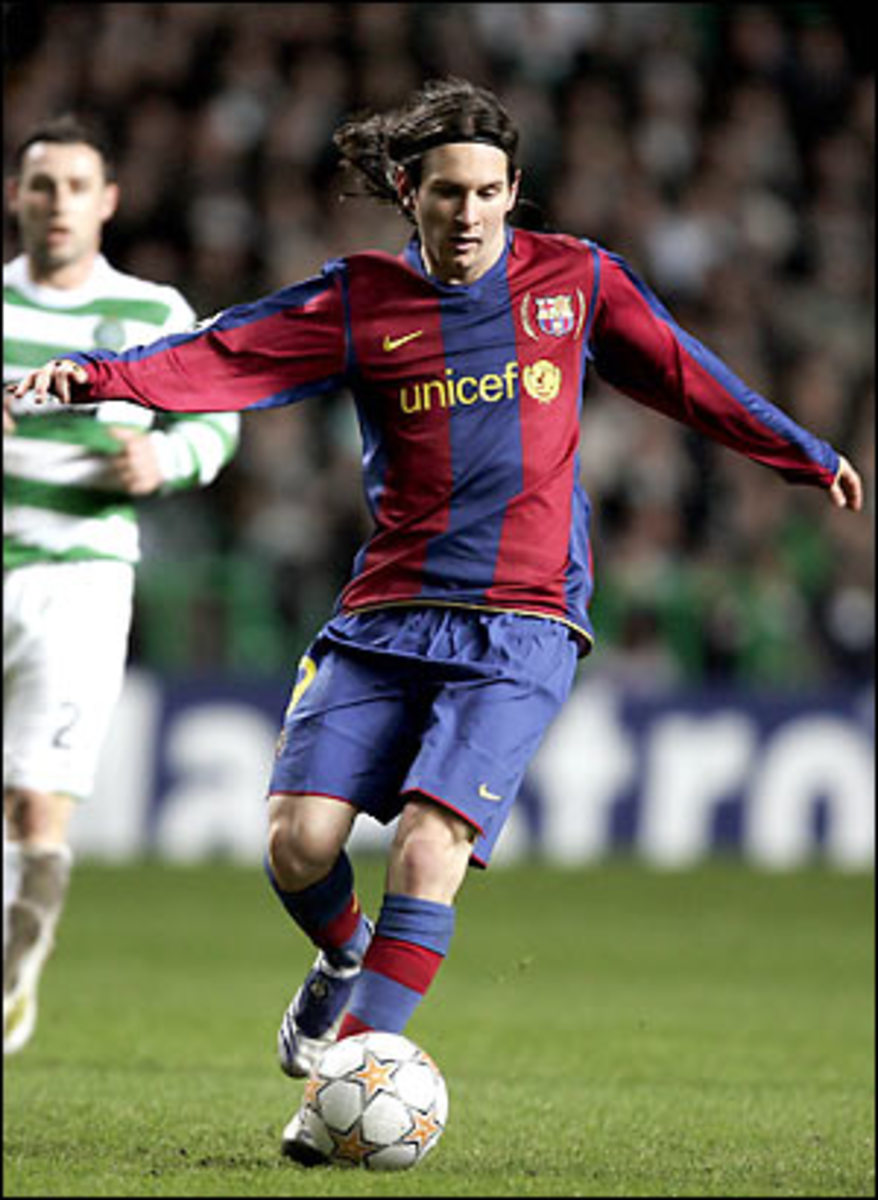A not-so-fine Messi
Lionel Messi left the field in tears during Barcelona's 1-0 win over Celtic in the Champions League last week. His latest injury -- a torn thigh muscle -- was a major blow not only for Barça, which will be without its brightest talent for at least six weeks, but it also raised wider questions about Messi's long-term future.
Messi had been rested for Barcelona's previous match, a 4-2 league defeat to Atlético Madrid and coach Frank Rijkaard took a pasting by the Catalan media for omitting the young Argentine starlet from his starting lineup.
After the win over Celtic, which eased Barcelona's passage to the Champions League quarterfinals, Barça captain Carles Puyol launched a furious tirade at the media, effectively blaming them for pressurizing Rijkaard into ignoring the advice of the club's medical staff and playing Messi against Celtic.
"Messi's injury is a lesson to everyone," Puyol complained. "You [the media] pressured for him to play against Celtic and now look what has happened. What you have to do is show more respect for the medical staff and the coach."
Putting aside the fact that Puyol was, in effect, admonishing his own coach for giving in to media pressure (oh, to be a fly on the wall during his next conversation with Rijkaard!), his attack was more than just a knee-jerk reaction to losing a key player at a crucial stage of the season. He was also making a salient point about Messi's long-term development.
There would be few concerns about Messi if he had suffered a broken leg -- a painful injury but one that is easy to recover from. Yet his latest setback is already painfully familiar for Messi, having been sidelined for five weeks with the same injury earlier in the season.
As a footballer, Messi is a bundle of contradictions. His slender frame goes against the modern convention for footballers who can survive the physical rigors of European club soccer. The likes of Kaká and Cristiano Ronaldo are supremely gifted ball players, but they lack for nothing in physical challenges. Not so with Messi, whose greatest physical asset is his ability to accelerate past defenders, not bounce off them.
Messi's medical history is already complicated, having moved to Barcelona with his family at the age of 13 because the club agreed to fund a course treatment to overcome a growth-hormone deficiency. That Messi become a professional footballer at all is something of a miracle, let alone one to be compared with Diego Maradona.
This season, Messi has suffered the sort of minor injuries that shouldn't, when considered individually, be too much cause for concern. When considered collectively, though, they start to provide a more worrying picture.
In many ways Messi's emergence last season mirrors that of Michael Owen at the 1998 World Cup. Both teenagers, both blessed with terrific pace, both scorers of wondergoals: Messi against Getafe and Owen, ironically, against Argentina.
Yet Owen has never possessed the tactical awareness that Messi has already demonstrated in a short career. Owen's greatest asset has always been his pace. Yet with that in decline following a series of injuries, Owen is now struggling at Newcastle and fighting to be accepted by new England manager Fabio Capello.
The fear for Messi that his long-term development will now mirror that of Owen who, though he was voted European Footballer of the Year in '01, has struggled to repeat the feats of France '98.
Messi is more of a complete footballer than Owen but has already had great -- possibly too great -- expectations placed upon his slender shoulders.
Gavin Hamilton is the editor in chief ofWorld Soccer Magazine. He contributes to SI.com on alternate Tuesdays.






